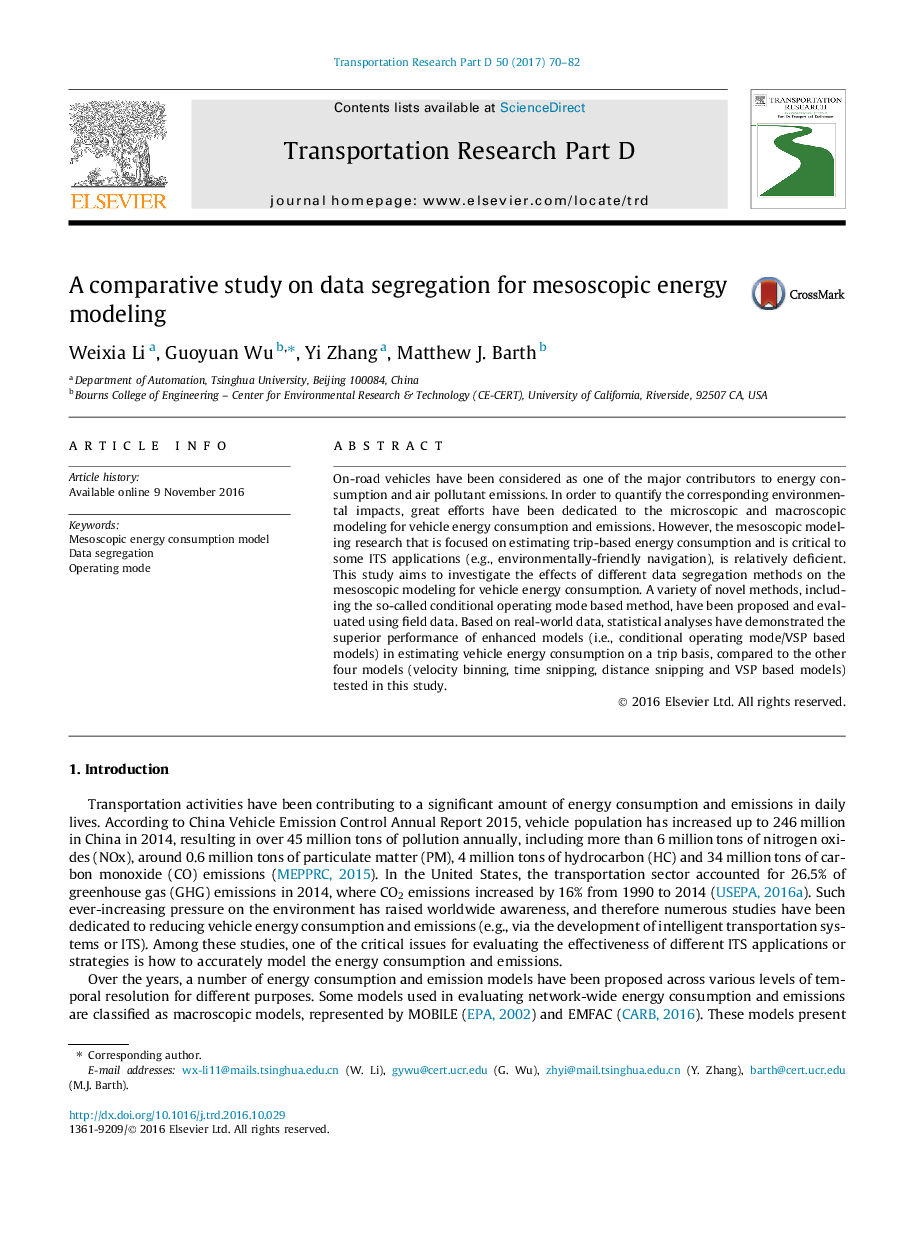| Article ID | Journal | Published Year | Pages | File Type |
|---|---|---|---|---|
| 5119456 | Transportation Research Part D: Transport and Environment | 2017 | 13 Pages |
â¢Six segregation methods in mesoscopic energy consumption modeling were compared.â¢A novel method taking conditional operating mode into consideration was proposed.â¢Proposed methods are evolved in information richness levels in modeling process.â¢Trip based evaluation is conducted based on field data collected in Beijing, China.â¢Evaluations demonstrate the newly proposed model has higher estimation accuracy.
On-road vehicles have been considered as one of the major contributors to energy consumption and air pollutant emissions. In order to quantify the corresponding environmental impacts, great efforts have been dedicated to the microscopic and macroscopic modeling for vehicle energy consumption and emissions. However, the mesoscopic modeling research that is focused on estimating trip-based energy consumption and is critical to some ITS applications (e.g., environmentally-friendly navigation), is relatively deficient. This study aims to investigate the effects of different data segregation methods on the mesoscopic modeling for vehicle energy consumption. A variety of novel methods, including the so-called conditional operating mode based method, have been proposed and evaluated using field data. Based on real-world data, statistical analyses have demonstrated the superior performance of enhanced models (i.e., conditional operating mode/VSP based models) in estimating vehicle energy consumption on a trip basis, compared to the other four models (velocity binning, time snipping, distance snipping and VSP based models) tested in this study.
